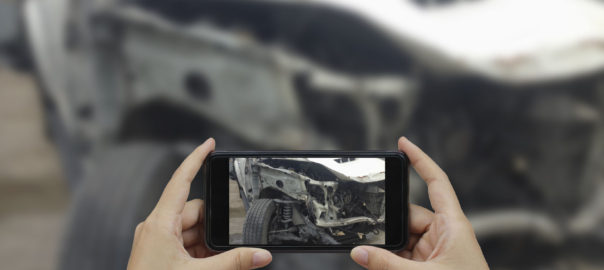“A picture is worth a thousand words.”


This phrase became part of the English language before most of us were born. Its meaning is clear: Pictures are powerful, especially when describing complex, emotional, life-changing events. And there are some things that require a picture for the listener to fully understand.
Truck accidents are one of those things. Your lawyer can describe your truck accident to opposing counsel, insurance companies, judges and juries. But to help them fully understand—to see the impact of everything you’ve been through—a picture is best.
We suggest that you take pictures of the scene of the accident. Unfortunately, this can be very challenging. Truck accidents are often severe and life-changing, and the people involved are injured so seriously that they are knocked unconscious or in so much pain that they cannot think clearly. Their focus is understandably on getting the emergency medical treatment they need.
That’s why we do the next best thing. We hire investigators and send them to the scene of the accident as soon as possible. Sometimes there is debris left such as broken glass and skid marks, which we can use to retell a story. Accident re-constructionists can use that debris to make calculations about your case. They can review pictures, do mathematical calculations, and testify before the court to help prove how fast a truck was going or when the brakes were used.
Today, technological advancements have made it so that bystanders often capture accident scene photos with their phones. It is not uncommon for accident scene footage to appear on social media or YouTube. When we reach out to truck accident witnesses, we can discover that they’ve taken footage of the scene. If so, we ask that they share it with our team.
Accident scene pictures aren’t the only ones that are useful to your case. Your attorney may want to convey other things too, telling the story of how much the truck accident has impacted your life. In doing so, other pictures become useful. These include:
In truck accident cases, trucking companies react quickly. They usually send teams of professionals to the scene to collect evidence and begin building a defense to possible litigation. To protect your rights, you need to build your case, too. You may never use the photographic evidence you collect. But, it is much better to have it and not need it than it is to need it and not have it.
That’s why we recommend taking pictures of your life and progress. You may never need them. You may not even need or want to look back on this painful period of your life. But, the photos may help your lawyer build your case if you take legal action. And chances are looking back at them will help you see just how much progress you’ve made since that life-changing accident.